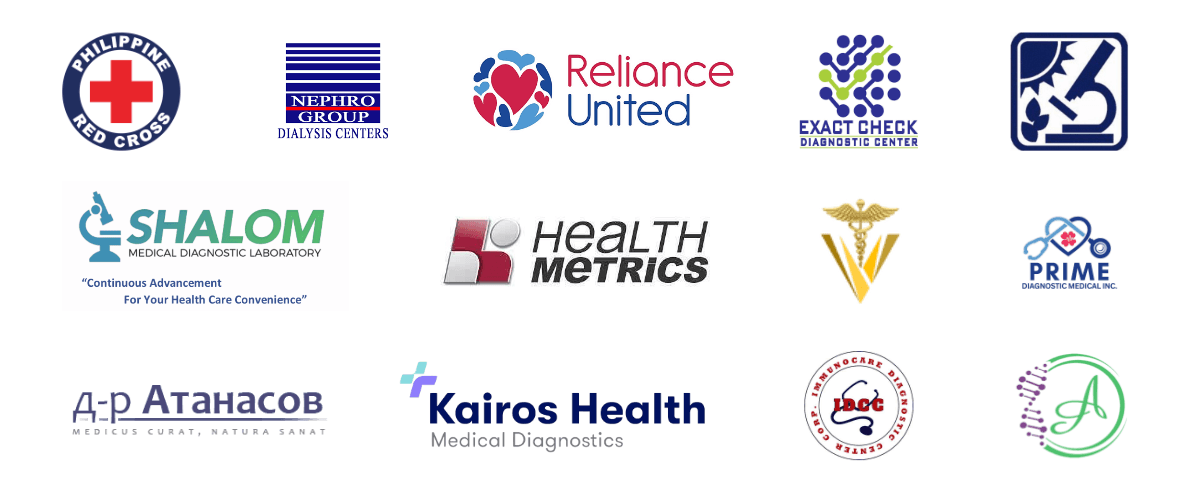
Empowering Healthcare Workers Through Integrated Healthcare Technologies
Originally Published on: 20 July 2022
Integrating advanced technologies into our healthcare system is key to improving the health outcomes of individuals and giving healthcare workers (HCWs) more room to do important tasks more efficiently. With COVID-19 drastically changing the systems and processes of hospitals, medical laboratories, and pharmaceutical companies, they have now moved forward to using tools that will help them access the vast amount of data produced by their monitoring systems, as well as bring them up to speed to meet the needs of the new world.
Accelerating Digitization and Innovative Technologies

Before COVID-19, movements already existed to optimize healthcare operations like the integration of vital signs monitoring technologies that capture data continuously even after the patient has left the doctor's office, as well as the development of electronic medical records (EMRs) to make existing clinical processes and facilities more efficient.
However, in spite of such improvements, the pandemic was able to expose the gaps in the healthcare industry, especially when it came to its digital systems. Examples of the gaps include the lack of a standardized EMR available to different hospital staff and a real-time tracking system of the locations for COVID-19 positive individuals inside health facilities which essentially put HCWs at risk of contracting the disease.
Fortunately, significant progress has been made to address the problems set by the pandemic. These digital solutions employed by the industry consisted of telehealth or virtual health consultations, electronic case reporting, and further improvements to EMRs. Not only did these solutions greatly help patients by providing them easier access to quality healthcare, it also provided HCWs easier communications with their patients and public health officials while lessening workload such as manually inputting and reporting data.
Although the efforts to create and adopt digital tools encountered issues like user reluctance and budget constraints, digitizing healthcare was ultimately perceived as a long-term benefit for everyone. The drive to develop integrated healthcare technologies carried over to health projects beyond COVID-19.
Moving Above and Beyond

After years of overcoming the challenges set by the pandemic, healthcare institutions are now applying what they've learned by making the integration of healthcare technologies a high priority.
The technological infrastructure of telehealth is now being used for performing virtual examinations where physicians can listen to their patients' “hearts and lungs remotely” and assist nursing home residents to lessen unnecessary visits to the emergency room. It is also being used for pharmacists to easily connect with patients that require special medical attention like individuals with cancer, pregnant and breastfeeding women, and those living in rural areas, giving pharmacists greater opportunities to answer questions related to their patients' medications and help improve their lifestyles.
The increased adoption of EMRs In nursing homes or long-term care facilities is giving various stakeholders like caregivers, clinicians, and healthcare providers less paperwork (e.g. updating patient records manually), wider access to the “latest medical information” thereby allowing for better medical decision-making, and reducing unnecessary medical tests and procedures.
Artificial intelligence (AI) is also playing an important role in the acceleration of improving medical care. In the Stanford University School of Medicine, a new technology that is being developed would be an AI that can create a “virtual representation” of patients wherein health information like the person's smoking history is reflected onto it. Having this kind of tool will allow doctors to customize medical care based on their patients' needs instead of one that is more general. When it comes to addressing the recent rise of cases for monkeypox, an “AI-based test development system” was used to develop a PCR test which can detect the virus in less than two hours, preventing it from causing a pandemic like what happened with COVID-19.
Now more than ever before, healthcare workers are given great technological tools to ease their burdens from time-consuming administrative tasks and inaccuracies when making medical reports and decisions. As the healthcare industry increases its adoption of innovative technologies, healthcare workers can better focus on what's most important in their jobs: saving people's lives.
Dashlabs.ai as a Helping Hand
Dashlabs.ai is fully committed to being a helping hand for healthcare workers as they take care of patients with greater efficiency and impact in a technologically dependent society. Our platform provides a unified command center where medical laboratories can digitize their processes, customize test settings according to their needs, and receive analytics and reports on patient demographics and the total number of tests conducted.
Disclaimer: The image and graphics used by Dashlabs.ai on this document is for general informational purposes only. Dashlabs.ai does not own nor claim ownership to the images and graphics used in this document. All images and graphics used on the document are provided in good faith, however we make no representation or warranty of any kind, express or implied, regarding the accuracy, adequacy, validity, reliability, availability or completeness of any information.
Trusted by many medical organizations
processing over 10M+ patients
Dashlabs.ai's cloud-based LIS powers healthcare organizations such as diagnostic laboratories, medical centers, veterinary clinics, dialysis centers, hospitals, and corporate healthcare providers that conduct Annual Physical Exams (APE). Dashlabs.ai ensures seamless data management, patient processing, and reporting to improve overall workflow efficiency.

Create an account and start processing patients in minutes.
Start now and work faster

29F Summit One Tower
530 Shaw Bvld.
Mandaluyong City
Philippines 1550
+63 945 463 6137
3790 El Camino Real
Unit #508
Palo Alto, California
United States 94306
+1 (650) 662-6008
Privacy PolicyTerms of Service
© Copyright 2025 Dashboard Labs Corporation
